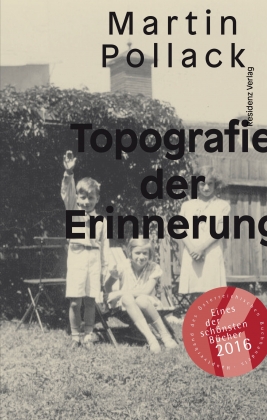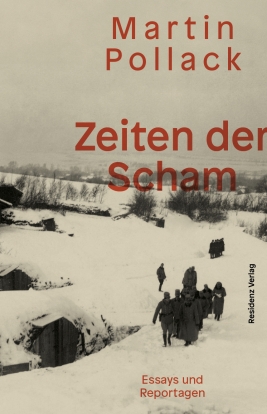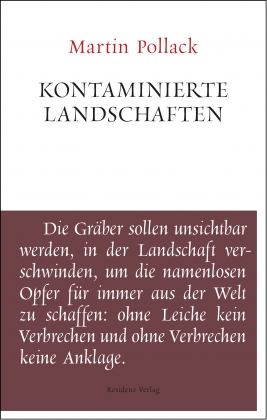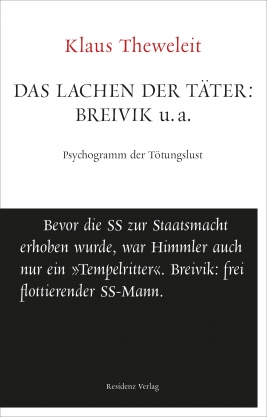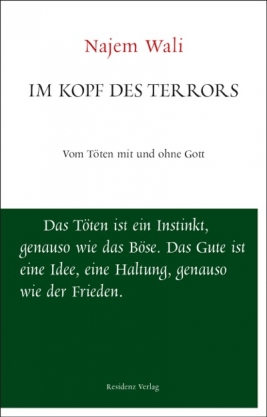Mit seinem Essayband zeigt Martin Pollack, wie eindrucksvoll sich Politik, Geschichte und Literatur, Zeugen- und Autorenschaft verbinden lassen.
[Quelle: Ö1 Morgenjournal]
Immer wieder stellt Martin Pollack die zentrale Frage der Geschichtspolitik: Wie können und müssen wir heute mit dieser Erinnerung umgehen? (…) Die dem Text entsprechenden Schwarzweiß-Fotografien im besonders schön gestalteten Buch unterstreichen das Geschriebene nochmals auf ergreifende Art und Weise. Schon das Covermotiv (…) verstört und irritiert, macht aber neugierig auf die Essays des außerordentlichen Erzählers.
[Quelle: Begründung der Jury bei der Auszeichnung der schönsten Bücher Österreichs]
Ein Erinnerungsarbeiter ersten Ranges.
[Quelle: ORF]
Martin Pollack schreibt ungeheuerliche Texte. Sie zeugen von einem bösen Erbe. (...) Zu Pollacks glasklarem Stil kommt, dass er etwas zu sagen hat. Das macht aus seinen nichtfiktionalen Texten große Literatur.
[Quelle: Dominika Meindl, FALTER]
Eine eindrückliche Warnung vor dem Verdrängen und vor dem Vergessen.
[Quelle: Wolfgang Beyer, ORF ZiB]
Eine facettenreiche zeitgeschichtliche Aufarbeitung mit aktueller Brisanz, brillant zu lesen und erschütternd zugleich.
[Quelle: Jutta Kleedorfer, BIBLIOTHEKSNACHRICHTEN]
Pollacks neuer Band ist ein eindrucksvoller Beweis seiner essayistischen Fähigkeiten, vor allem aber des genauen und geduldigen Blickes, der jenen Geschichten nachspürt, die wenig präsent und mitunter auch zu wenig plakativ sind.
[Quelle: Julius Schlögl, FM5]
Martin Pollack schreibt in einer einfachen, klaren, eleganten, aber auf keinen Fall simplen Sprache. Er findet immer wieder neue Einstiegspunkte in die gleichen Themen, die ihn mittlerweile seit Jahrzehnten bewegen, ohne dabei langweilig oder belehrend zu werden.
[Quelle: Elisabeth Binder, janetts meinung]
Große Geschichte im Kleinen. Auf der einen Seite die offizielle Geschichtsschreibung. Auf der anderen Seite die individuelle Erinnerung. In diesem Spannungsfeld schreibt der Autor, Journalist und Übersetzer Martin Pollack. Seine Reden und Aufsätze kreisen um zeitgeschichtliche Themen, immer inspirierend, immer verwoben mit etwas sehr Persönlichem – eine Geschichte, eine Begegnung oder ein Gedanke.
[Quelle: Christine Grüll, KIRCHENZEITUNG DIÖZESE LINZ]
In seinem Essayband „Topografie der Erinnerung“ unternimmt Martin Pollack feinnervige Grabungen in den Erinnerungen. Beharrlich arbeitet er sich zu den verschatteten Zonen der Geschichte vor.
[Quelle: Nico Bleutge, NEUE ZÜRCHER ZEITUNG]
Den Gespenstern der Vergangenheit offen begegnen will Martin Pollack und er tut es engagiert und in bestem literarischen Stil.
[Quelle: Dr. Rüdiger Opelt, amazon.de]
Martin Pollack vermisst das nahe und doch manchmal fern scheinende Zentraleuropa. In seiner „Topographie der Erinnerung“ fördert er dessen Geschichte in Geschichten zutage, die allzu oft keine angenehme, aber immer eine intellektuell anregende Lektüre bieten.
[Quelle: Stephan Stach, FAZ]
Ein großes Lebenswerk als Hintergrund wird hier sehr persönlich und anrührend resümiert: Journalismus muss auch Erinnerungsarbeit sein.
[Quelle: Wolfgang R. Langenbucher, DER ÖSTERREICHISCHE JOURNALIST]
Pollack is clearly trying to educate Austrians to be more critical of their past and to be more open-minded to people with different backgrounds. These essays provide interesting food for thought for any scholar working on these topics.
[Quelle: Joseph W. Moser, JOURNAL OF AUSTRIAN STUDIES / UNIVERSITY OF NEBRASKA PRESS]
Die Beiträge in „Topografie der Erinnerung“ bieten einen exzellenten Überblick über das journalistische und schriftstellerische Schaffen Pollacks. Er ist ein hervorragender Beobachter und emphatischer Zeitgenosse, dem es gelingt, die schwierigen historischen Konflikte des 20. Jahrhunderts aufzugreifen und auch dem nicht mit dem Kontext vertrauten Leser anschaulich zu vermitteln.
[Quelle: Silvia Petzoldt, SPIEGELUNGEN]
